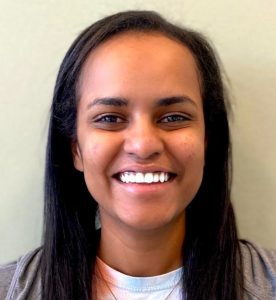
By Amel Ali, CommUnity Crisis Services Diversity, Equity, and Inclusion Specialist
May is mental health awareness month, and as CommUnity’s Diversity, Equity, and Inclusion Specialist, I want to touch a little bit on stigmas or barriers that other cultures may face when trying to access resources for mental health, specifically in Iowa City. One big thing that doesn’t get spoken about enough is the impact that the immigration process has on children, whether a family is fleeing from war or simply coming here to improve the lives of their young ones, there is a lot of trauma and, for lack of a better term, confusion on how to integrate your culture from overseas with the new culture here in the United States.
In my experience, dealing with all the things that happen not only psychologically but developmentally as a teenager while also trying to navigate interpersonal relationships and just wanting to be “normal,” I was very sure that my parents would “never get it.” I felt embarrassed to even bring it up, so I avoided telling them what happens in the lives of a middle school or high school student in the United states. This had a tremendous impact on my mental health. I was always anxious and never felt a sense of belonging (which is a common theme among first generation immigrant youth), add the stress of having to “hide” certain aspects of my life from my parents, which eventually led me to develop an eating disorder (we can get to that in another blog post). This was in 2013, and thankfully the resources and help I received was successful and led to a closer relationship between my parents and me.
Mobile crisis is a great mental health resource, especially for bridging a few gaps with communication between parents and the Iowa City Community School District. Mobile Crisis can also help parents handle situations with their children that they may not be equipped to handle because they don’t have experience dealing with similar situations to that of a high-schooler in the U.S.
One big thing that gives me hope is the willingness and openness of people, especially younger generations. I speak to immigrant parents that want to be involved in their children’s lives and want to learn more about how they can better support their children during these difficult and unprecedented times. I am watching families and kids bridge the gap between cultures and generations in real time.
While I think we still have a long way to go, I am witnessing people being more open and willing to have these conversations and that is a big step forward in the right direction.
If you or your child are experiencing a mental health crisis, please don’t hesitate to reach out for support.
To have Mobile Crisis Response counselors dispatched to your location, call the Your Life Iowa line at 1-855-581-8111 and ask for mobile crisis.
To connect with a Crisis Helpline Services counselor, call or text 1-855-325-4296 or chat online at IowaCrisisChat.org.